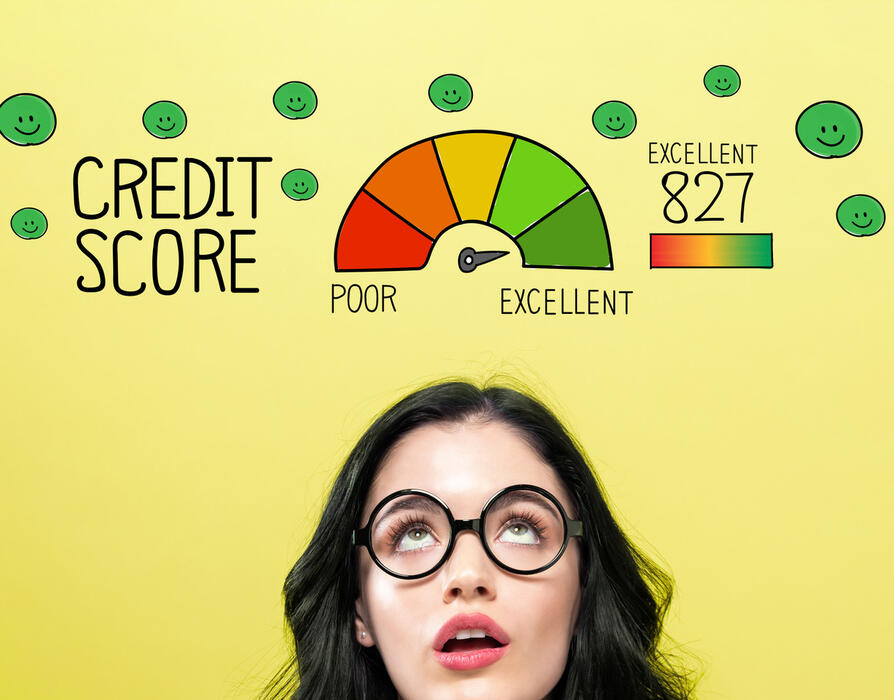5 Ways To Improve Your Credit Score In 2020
Posted 5th March, 2020
A bad credit score can stop you getting a phone contract, loan, credit card or even a mortgage in later life.
It is very easy to ignore, but your credit file and credit score is a key indicator of your financial wellbeing. An incorrect address or ex boyfriend’s financial past could be dragging your score down, making it harder for you to obtain the best finance deals.
Your credit score is a calculation based of information in your credit file. This is calculated using credit reference Agencies (CRA's). Your score is designed to reflect how creditworthy you are to potential lenders.
The frustrating thing about your credit score is that you don’t have just 1. There are 3 CRA's in the UK (Equifax, Experian, Trans Union) and each scores you on a different scale. For instance, an Equifax score of 550 would be considered excellent, but a 550 score from Experian would be poor.
Another annoying thing about your credit score is that not all 3 CRA's have 100% of the same information. So, your Experian credit score could be good but your Equifax credit score considered average or bad. This is all dependant on who you have had credit agreements with in the past and whether these lenders report information to all 3 CRA's. Many don’t!
However, generally the factors that influence you having a good or bad credit file are all the same. Here, Fast Loan UK explains 5 simple steps to help boost your credit file in 2020
1) Register to vote
It’s important to be on the electoral register as it confirms your name and address to lenders. Experian claim that it can boost your credit score by 50 points You can add yourself to the electoral roll in just a few minutes at Gov.uk
2) Do not regularly apply for credit
If you know that you will be needing to apply for credit in the future, let’s say you are wanting a new car or a mortgage - then try your hardest not to apply for any form of credit for at least 6 months prior to this. Having multiple hard searches for even the smallest of things like a new bank account, or phone contract can be a negative indicator that you are actively requiring credit and overly reliant. This will make any lender more reluctant to lend a large amount of money to you.
3) Correcting errors on your credit report is essential!
Which surveyed 1,105 members of the public in 2019 and found out that nearly 4 in 10 have never checked their credit report. Of those who did check their report, more than a 1 in 5 reported finding an error. An error on a credit report could be anything from an old address, incorrect associate details or even wrongly recorded missed payments. In the worst instances a credit product could be fraudulently taken out in your name. If you were to find information in your report that you disagree with, you can contact the lender directly or alert the CRA, who will get in contact with the lender on your behalf. The CRA has up to 28 days to deal with the dispute and confirm what action it will be taking. You can check your credit score for free at Credit Karma and Clear Score.
4) Close unused or unwanted credit cards
Research carried out by Credit Karma, part of the CRA TransUnion, suggest nearly 40 million credit cards are lying unused in the UK alone. Having unused cards could leave you vulnerable to identity theft and in many cases can even affect your credit score negatively. If you do not check regularly on these cards’ fraudsters could run up credit card debts in your name and fail to repay them – This will negatively impact your score with a missed payment and could even result in County Court Judgements against you. Some lenders out there may view thousands of pounds of unused credit negatively – as it has the potential to be used, so there is the chance that you could be rejected for other lines of credit you might need like a mortgage.
5) Keep your credit card usage down
Lenders refer this to credit card utilisation, i.e. the percentage of your credit card balance that you have used against what you have remaining on your limit. So, lets say you have 2 credit cards with a total balance of £5000. If you had used £2500 of that limit your credit card utilization would be 50% Experian says that keeping credit utilisation under 30% and at least not over 90% will help your score. Do bear in mind that closing credit accounts (as discussed above) can affect your ‘credit utilisation’, increasing the percentage of available credit you’re using. This can potentially make you look too reliant on credit – with this in mind its always worth weighing up the two factors before taking any action.
